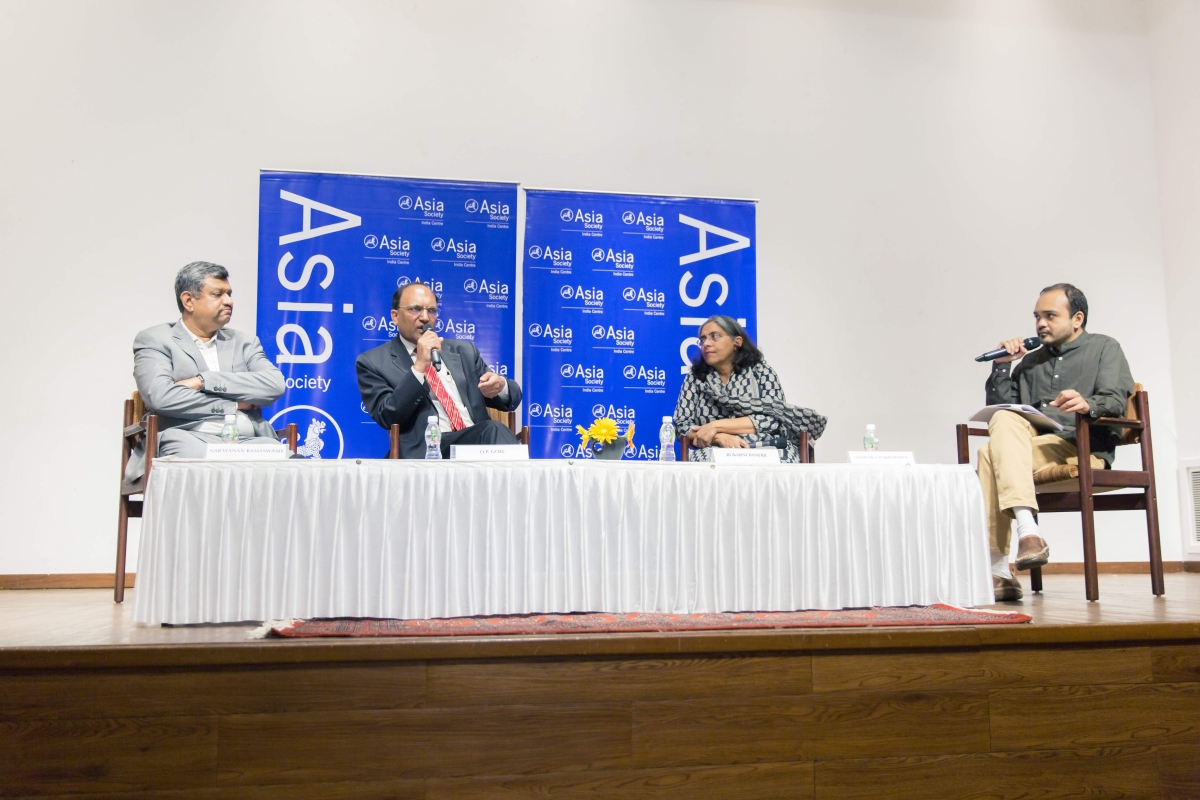UpSkilling India: What does it take?
Education Series 2019: Part 2

(L-R) Narayanan Ramaswamy, O.P Goel, Rukmini Banerji, Samyak Chakrabarty
Mumbai: On November 21st, Asia Society India Centre hosted Dr. Rukmini Banerji, CEO of Pratham Foundation; Dr. O.P. Goel, Head of Bosch India Foundation and Mr. Narayanan Ramaswamy, Partner and Head of Education, KPMG for a discussion on skill development and vocational education in India. Mr. Samyak Chakrabarty, Founder and Managing Director at X Billion Labs moderated the discussion which also explored the skill gaps in the Indian workforce, employability of the young population and the importance of establishing alternate avenues for students who are unable to pursue a university education.
The discussion began with Goel presenting the work done by his organization, Bosch India Foundation, in developing apprenticeship programs in India in an effort to bridge the skill gap and provide free of cost and subsidised training programmes to school drop-outs and unskilled job-seekers. This was followed by a presentation by Banerji who spoke about the work done by Pratham Foundation and Pratham Institute in the field of skill development and vocation education. She also spoke about her experience with the Annual Status of Education Report (ASER) Centre and the findings of 2017 ASER report which focused on students in 14-18 age group and the challenges they face after they move out of the secondary education section.
Following their presentations, the panel discussion commenced with the speakers sharing their views about the issues plaguing the academic and professional sector in India. Goel, in response to Chakraborty’s question on the difference in training procedures for dropouts and degree-holders in the apprenticeship programs at the Bosch Foundation, said that employers in India often ignore the fact that many candidates hold a certificate, but are not necessarily educated or skilled. And while many college dropouts develop skills that make them employable, they are often turned down as they do not have a formal college degree. Emphasis was also given to the flawed academic structure of the country, which tends to only impart education to a few while disregarding other students who do not adhere to the conventional academic path. The issue of technology replacing jobs was addressed as well with Ramaswamy stating that there is no net loss of jobs, but a shift in the nature of jobs. Employers today have different expectations from employees in terms of skills and abilities, such as problem-solving, creativity and emotional intelligence. Prospective employees are expected to be equipped with these skills to be able to handle the changing nature of jobs that become available.
On the rising popularity of e-learning among the youth, Banerji said that while online learning can offer exciting new academic experiences, it suffers from the flaw of depending on the motivation of the student to learn. Another challenge that this platform faces is judging the new parameters of assessment for the skills imparted. She said that employers need to be ready and equipped to understand these new parameters and the ways in which they can be harnessed.
The session concluded after an engaging Q&A session with the audience who asked questions on a range of issues, including entrepreneurship training programs, rural job scarcity, and the systematic generation of demand for both technical and soft skills by employers.
As reported by Aatreya Bhat, Programme Intern, Business and Policy, Asia Society India Centre
Watch the full programme here: https://www.youtube.com/watch?v=tbGN2yo4lPA&feature=youtu.be (1 hr, 36 minutes)
